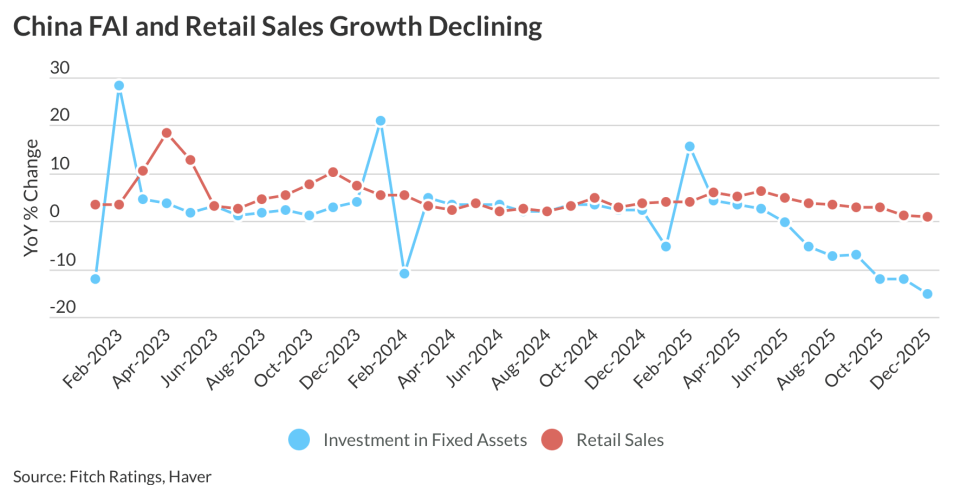
Country Garden Holdings Co.’s debt crisis is entering a new chapter, after a Hong Kong court received a creditor’s petition to liquidate the Chinese developer, a move that adds pressure on the defaulter to quicken its restructuring efforts.
The first hearing date is scheduled for May 17 at Hong Kong’s High Court, after Ever Credit Ltd. filed its so-called winding-up petition dated Tuesday. Country Garden failed to make payments on a term loan facility of about HK$1.6 billion ($204 million), plus accrued interest, to the lender, according to an exchange filing.
The development will likely inject a sense of urgency into Country Garden, whose liquidity crisis shook Chinese financial markets in recent months, to expedite progress on delivering a debt overhaul blueprint to creditors. Dragging its feet may risk repeating the fate of rival China Evergrande Group, which suffered a historic liquidation order by the Hong Kong court last month.
The Guangdong-based developer overtook Evergrande as the epicenter of the nation’s property crisis when it defaulted on a dollar bond in October. Helmed by one of China’s richest women Yang Huiyan, Country Garden has about $10 billion of offshore bonds outstanding, according to Bloomberg-compiled data.
Country Garden’s dollar bonds trade at deeply distressed levels of around 8 cents on the dollar, showing how little money investors expect to recover, after some were near 80 cents in June. Its shares plunged nearly 14% Wednesday, bringing the loss in the past 12 months to over 70%.
The winding-up petition “is likely a necessary process for the petitioner,” said Zhi Wei Feng, a senior analyst at Loomis Sayles Investments Asia Pte. “To other creditors, it is good to see some push factor.”
Ever Credit is a unit of Kingboard Holdings Ltd., a Hong Kong laminates maker which in October issued a so-called statutory demand to Country Garden for repayment.
Country Garden said its debt that involves Kingboard accounts for a very low proportion of the offshore liabilities. The “radical actions” of a single creditor will not have a significant impact on the company’s delivery of homes, normal operations and the overall restructuring of overseas debt, it said in response to Bloomberg’s queries.
A winding-up petition can be filed against a company in a Hong Kong court when a creditor is owed at least HK$10,000, according to the city’s Official Receiver’s Office. If the court rules in favor of the request and appoints a provisional liquidator, the latter may take control of the company, dispose of its realizable assets and distribute any remaining funds to creditors whose claims have been admitted.
While it’s unclear at this stage who will preside over the lawsuit, the Hong Kong court features prominent figures including Linda Chan, its main bankruptcy and restructuring judge who issued the liquidation order on Evergrande and is known for her tough stance on distressed Chinese firms.
Country Garden hired KPMG Advisory (China) Ltd. as the principal financial adviser for the company’s offshore liability restructuring in January. An ad-hoc creditor group named PJT Partners Inc. as financial adviser and Kirkland & Ellis LLP as legal adviser, Bloomberg reported last month.
Country Garden could extend its debt by as long as nine years if it were to pull off a debt overhaul, Bloomberg Intelligence analysts Daniel Fan and Hui Yen Tay said in a recent note. This is based on estimates that its earnings before tax reaches about 12 to 13 billion yuan, and that it swaps 40% of offshore debt into equity, they wrote.
In recent months, the company has taken steps to ease its debt woes, including repaying an 800 million yuan ($111 million) local bond in full and selling a stake in a mall operator for 3.07 billion yuan with proceeds to be used for offshore debt restructuring.
There are signs that the builder is also benefiting from Beijjing’s widening property rescue campaign. Country Garden said Wednesday it has seen a spike in projects approved by local authorities for financing support.
Once the nation’s top developer by sales, the developer at its peak employed 130,000 people, housed tens of thousands of families and accumulated $240 billion in liabilities. The developer’s setback adds to China’s property turmoil that’s weighing on the economy. The property market and related industries at its peak accounted for about 20% of China’s gross domestic product.
Credit: Source link















